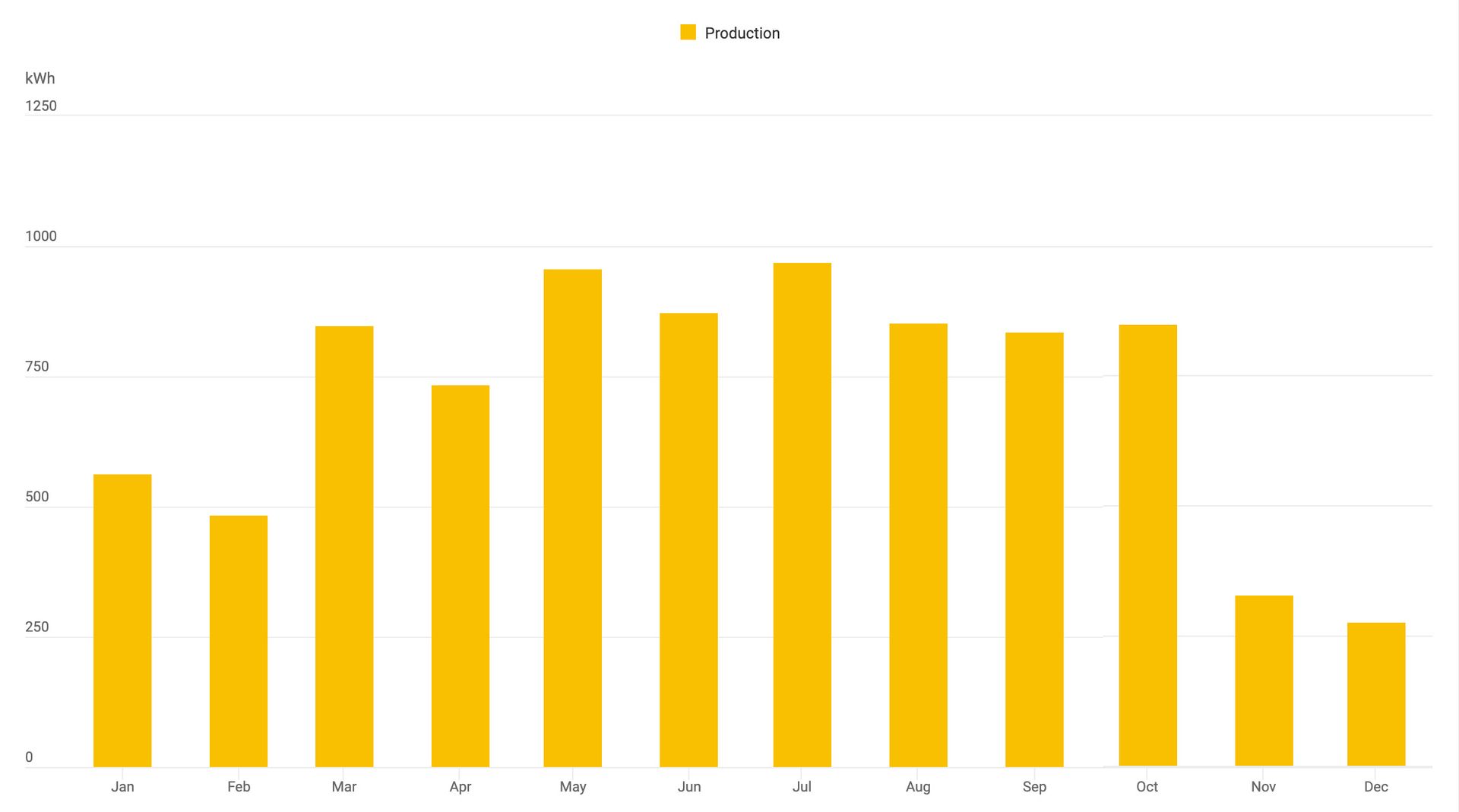How Solar Works in Southwest Wisconsin
Harnessing the Sun's Power in the Driftless Region
Battery Storage Options for Every Need
Before diving into how solar technology works, let's explore why Southwest Wisconsin homeowners and businesses are increasingly turning to the sun for their energy needs.
Economic Benefits
- Properly sized systems can offset over 95% of household consumption, effectively eliminating most electric bills
- Typical ROI for Wisconsin solar systems: 10-13 years, with 25+ years of energy production
- Protection from utility rate increases (Wisconsin electricity rates have risen 2.6% annually over the past decade)
Environmental Benefits
- Each 10kW system in Wisconsin offsets approximately 10 metric tons of CO₂ annually
- Equivalent to planting 240 trees each year on your Wisconsin property
- Reduces dependence on out-of-state energy sources, keeping your environmental impact local
Property Value Benefits
- Wisconsin homes with solar typically sell for 4.1% higher than comparable properties
- According to national data, solar homes often sell faster than non-solar properties (TO BE VERIFIED for Wisconsin-specific data)
- Provides energy independence and resilience against grid outages
Curious about your potential savings?
How Solar Panels Work in Wisconsin
Solar energy systems harness the power of the sun through a sophisticated yet straightforward process, with special considerations for Wisconsin's unique climate.
Sunlight Absorption
Photovoltaic cells in the solar panels capture sunlight and convert it to energy.
Wisconsin Note: Despite our northern location, Wisconsin receives 4.5 peak sun hours daily on average, comparable to parts of Florida during summer months.
Electricity Generation
Silicon cells convert sunlight to direct current (DC) electricity.
Wisconsin Note: Even on cloudy Wisconsin days, modern panels still generate electricity at 10-25% of rated capacity from diffuse light.
Inversion Process
Inverters transform DC to alternating current (AC) electricity that can power your home.
Wisconsin Note: Our inverters are rated for Wisconsin's temperature extremes from -30°F to 120°F.
Power Distribution
AC electricity powers your home or business through your existing electrical panel.
Wisconsin Note: Seamlessly integrates with existing Wisconsin utility infrastructure.
Grid Connection or Storage
Excess energy flows to the grid for credit or into battery storage for later use.
Wisconsin Note: Critical for Wisconsin's occasional grid outages during winter storms.
Want to see how solar would work on your property?
Solar Performance in Wisconsin's Climate
Wisconsin Weather and Solar Production
Wisconsin receives 4.5 hours of peak sunlight daily on average (more than Germany, the world's leading solar market). Modern solar panels actually perform better in cold temperatures due to increased electrical conductivity when ambient temperatures are below 77°F.
What surprises many homeowners is that snow reflection can increase solar production by up to 15% through the "albedo effect," where sunlight reflects off snow onto panels.
Wisconsin Winter Solar Solutions
- Our systems include snow-shedding panel placement and optional snow guards
- Cold-rated components ensure operation in sub-zero temperatures common in Wisconsin winters
- Battery backup systems provide critical power during Wisconsin ice storms and grid outages
Seasonal Solar Production in Southwest Wisconsin

*Based on actual production data from Ethos Green Power installations in Southwest Wisconsin. A typical 6 kW residential solar array in Wisconsin generates approximately 8,348 kWh annually.
See how your roof performs in every season
Local Incentives and Financing
Wisconsin residents benefit from several programs that make going solar more affordable than ever before.
Federal Tax Credit
30%
The Federal Investment Tax Credit reduces your system cost by nearly one-third. This credit applies to your federal tax liability, effectively giving you a 30% discount on your solar installation, available through 2025
Focus on Energy Program
Up to $600
Wisconsin's Focus on Energy program offers additional incentives for residential customers going solar. This program provides cash-back rewards for energy-efficient upgrades including solar installations.
Local Utility Incentives
We're committed to helping you access every available benefit, including Focus on Energy programs, ensuring Southwest Wisconsin families and businesses get the most from their solar investment.
Find out which incentives you qualify for
Wisconsin Customer Success Stories
Real Results from Your Southwest Wisconsin Neighbors
The Schippers
La Crosse County
System: 16.2kW ground mount solar installation.
“As we started talking to the experts, we could clearly see that our electricity bill was very high…around $200 a month,” he explained. “So we kind of thought…can we get rid of $200 a month payments?”
To their surprise, the answer was yes: “everybody assured us we could, and one year later it definitely is working.”
Monthly Electricity Costs
Before Solar
$210
Monthly electric bills
After Solar
$18
Monthly connection fee, plus $150 annual electricity costs
Farmer
Vernon County
System: 23kW ground-mount solar array
This farmer was looking to reduce operational costs of drying corn while staying true to their sustainable farming values. Their farm in Vernon County had ample open space for a ground-mounted system.
ROI: System will pay for itself in less than 6 years after incentives, with an expected lifetime savings of over $110,000.
Monthly Electricity Costs
Before Solar
$340
Monthly electric bills for farm operations
After Solar
~$0
Net electricity costs, with summer excess covering winter usage and overproduction credit covering monthly connection fee.
Join your neighbors in energy independence
Wisconsin Solar FAQs
How do solar panels perform in Wisconsin winters?
Modern solar panels actually perform more efficiently in cold temperatures due to increased electrical conductivity. While production decreases during shorter winter days, panels often outperform specifications during cold, sunny winter days. Snow typically slides off panels mounted at our recommended angles, and any accumulated snow melts quickly as panels warm. On cloudy winter days, panels still generate 10-25% of their rated capacity.
What happens during Wisconsin power outages?
Standard grid-tied systems will shut down during outages for safety reasons. However, our battery backup solutions provide continuous power during outages—critical during Wisconsin's winter storms. Battery systems can be sized to power essential loads for days or your entire home, depending on your needs.
What about Wisconsin utility rules and regulations?
As a local installer, we're experts in Wisconsin's net metering policies, interconnection requirements, and utility-specific programs. We handle all paperwork with your utility provider, whether it's Vernon Electric Cooperative, Xcel Energy, Alliant, or others serving Southwest Wisconsin.
How much maintenance do solar panels need in Wisconsin's climate?
Very little. Rain and snow naturally clean panels in most cases. We recommend an annual inspection, which we provide as part of our service package. Our systems are engineered for Wisconsin's freeze-thaw cycles, heavy snow loads, and occasional hail.
Have more questions?
The Cooperative Advantage
Ethos Green Power: Your Local Wisconsin Solar Partner
As a worker-owned cooperative based in Viroqua, we're invested in our community's sustainable future. Our cooperative structure means:
- We're accountable to our members and customers, not distant shareholders
- Our technicians are owners, ensuring the highest quality installations
- We're committed to Southwest Wisconsin's economic development and energy independence
Amicus Solar Cooperative Membership Benefits
- Access to premium solar equipment at competitive prices through our national buying power
- Cutting-edge training and certification for our installation teams
- Industry-leading warranties backed by a nationwide network of solar professionals

Ready to Harness the Power of the Sun in Southwest Wisconsin?
Join the solar revolution in the Driftless Region. Contact Ethos Green Power today for your free consultation and see how we can customize a solar solution for your home or business.
Or call us at (608) 637-3797 to speak with a local solar expert today.

Share On: